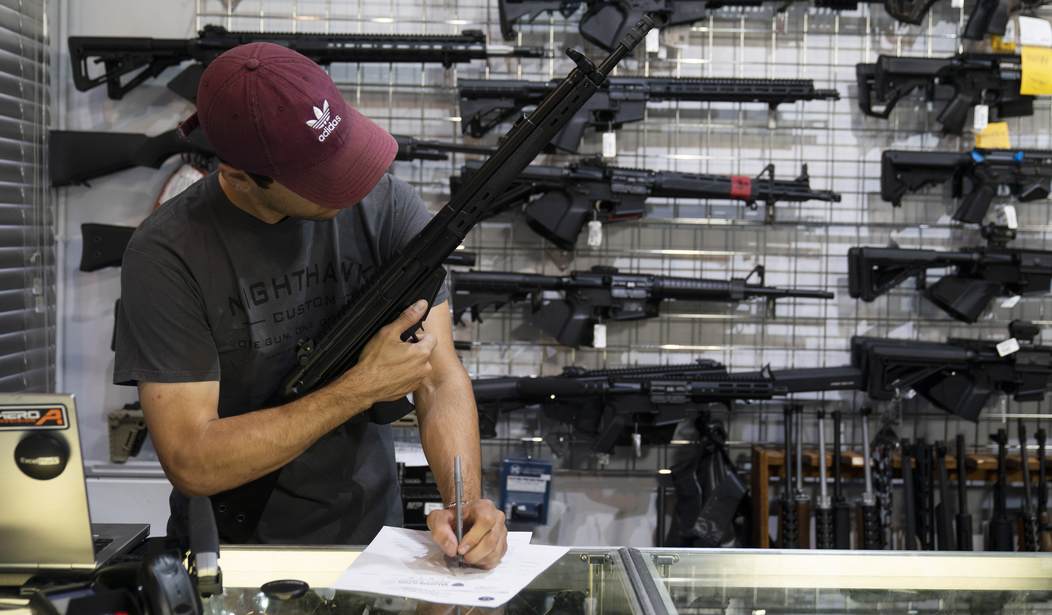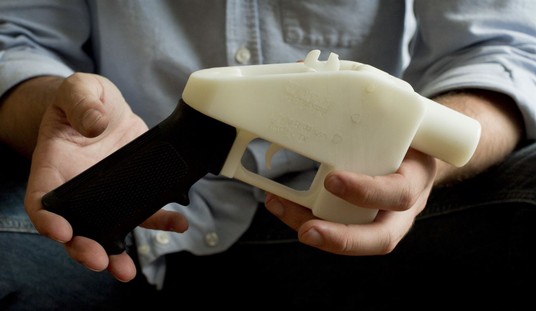I will likely never be much of an early adopter when it comes to technology. I like to see it prove itself a bit before I jump on the bandwagon. Yet I’m genuinely intrigued by advances in all areas of tech.
But technology can’t solve everything. Are mass shootings one of those puzzles that technology is unable to prevent?
Well, some people don’t think so.
Arwari, who runs the university’s Neuro-Cognitive Kinesiology lab, told Yahoo News that his inspiration came “from seeing the situations like the Pulse Nightclub [shooting] … and even before that, the Bataclan [theater] in France,” referring to the 2016 shooting in Orlando in which 49 people were killed, and an attack in Paris in 2015 in which 90 people died.
With a graduate student, Luis Carlos Diaz, he has invented a device called the Lightguard system, which, when triggered, flashes a bright light that can disorient an assailant.
The Lightguard Security System can temporarily impair an attacker’s vision, rendering someone in its path functionally blind for about 10 to 20 seconds. The partial visual impairment may last up to a few minutes. Arwari has tested the device on himself.
“All you can think about is, ‘I need to get this out of my face.’ So, instinctually, you turn away, and you want to go in the other direction,” he said.
He compares the device to a flash-bang, also known as a stun grenade, often used by police, but said the Lightguard is safer, since flash-bangs can cause permanent hearing loss or severe burns. Lightguard also serves as an emergency trigger to alert police.
Now, that’s pretty interesting and I can see how it can be effective. I have concerns about its application during a mass shooting, but I think this could be something useful. If you’ve ever had a seriously bright light flashed in your eyes, you know this can be disorienting.
It could provide crucial seconds for people to escape and may make the mass shooter unable to really carry out his attack.
However, some are floating a concern that Lightguard could be used by mass shooters who are looking to disorient their victims. I get the concern, but I’m not sure how realistic that concern actually is. For example, flash-bangs are actually available on the civilian market. No mass shooter has used one of those that I’m aware of.
It seems like a non-issue, though it’s a concern.
The report also delves into one of our favorite topics: Smart guns.
Two companies have announced plans to release “smart guns,” which use fingerprint technology that allows only verified users to shoot.
In January, LodeStar Works unveiled its 9mm smart handgun for its shareholders and investors. SmartGunz, a Kansas company, says its own product is in beta testing with law enforcement. Both companies hope to have a product commercially available this year, which they say could help lower suicides, make lost or stolen guns useless and protect law enforcement if criminals grab their guns.
While most guns in mass killings are purchased legally, there are instances where a weapon was registered to someone else, such as the shooter’s parent or a straw purchaser.
“The more you’re able to separate somebody from a weapon, even temporarily, when they are at a heightened risk of crisis or of using it to harm themselves or others, the more likely you are to be able to de-escalate the situation and reduce the likelihood of harm,” Schildkraut said.
Now, the issues with smart guns are plentiful. We’ve talked about them previously and absolutely nothing has changed in my book. However, for the sake of argument, let’s say all the bugs are worked out, no one wants to mandate just smart guns, and they’re simply no different than any other firearm for purchase.
Could smart guns reduce mass shootings?
Potentially.
We’ve seen multiple instances of someone underage stealing a firearm in order to carry out a mass shooting. Assuming they didn’t have access coded into the gun for some reason, the inability to use that firearm would avert the killer from committing a mass shooting.
It doesn’t stop them from doing something else, but it will stop them from using that gun in such a shooting.
That might be all that instance needs.
However, unlike Lightguard, this technology isn’t as easy to apply universally. You’d have to have bought a smart gun at some point well before we get to the mass shooting stage. There are reasons someone might want to do just that, which is fine.
What I don’t hear anything about is trying to understand what drives someone to do something like this and how we can approach that from a preventative standpoint. That’s always omitted from these discussions, and that’s a shame.








